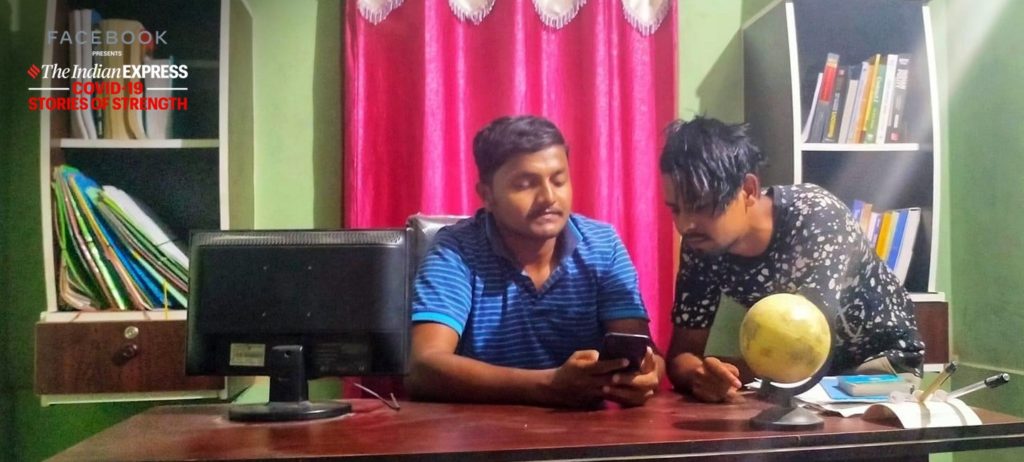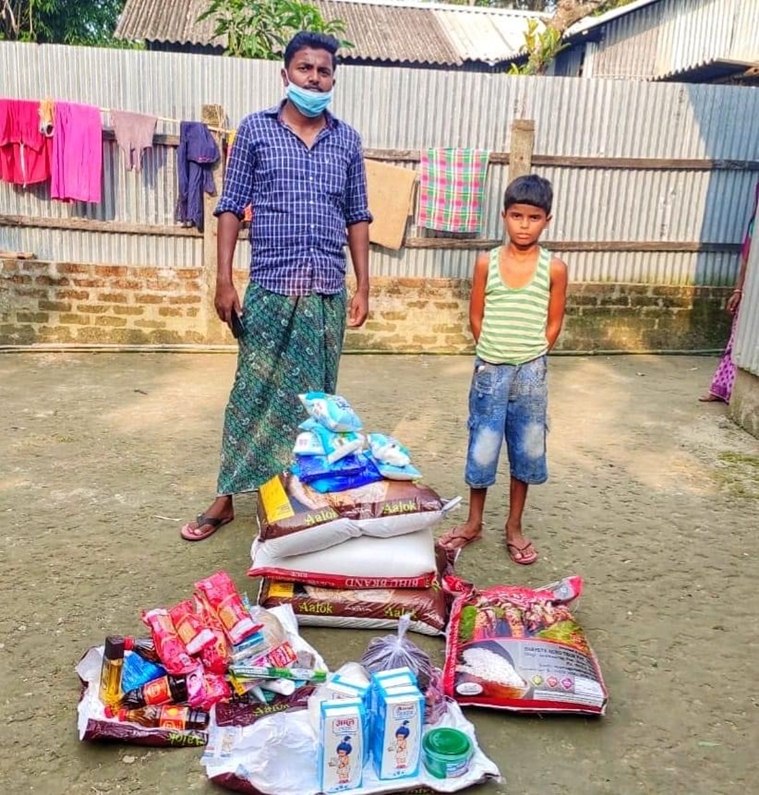Guwahati, ASSAM :
How an Assam lawyer became the source of reprieve for thousands of stranded migrants during the lockdown.

Guwahati :
A few days after the lockdown, when the plight of the stranded migrant first started making news, 27-year-old Aatifur Hussain remembered how some people from his village were in Haryana. An advocate from Assam’s Barpeta district, Hussain decided to give them a call. “They were panicking because they had run out of food,” recalls Hussain, who immediately touched base with a few local NGOs in Haryana. “They got their rations within 24 hours. The problem was solved.”
The next day, however, Hussain received another panic call from Noida. “I called up the local police station where the labourers were stuck, and they, too, received help,” says Hussain. Following that, the lawyer was suddenly receiving calls from all over the country — Kerala, Uttar Pradesh, Tamil Nadu, Maharashtra etc. “Word had somehow spread that I was helping stranded migrant workers from Assam with rations.”
In the beginning, Hussain would meticulously note down details of each and every call in his diary, but now the pages have run out. “There were just too many calls,” says Hussain, “It was almost like I was a call centre.”
Hussain did not mind — two years back, after he passed his LLB exams, he began providing pro-bono services to people caught in legal citizenship battles in Assam. “I had started an NGO called ‘Insaaf’ to aid people who needed help with National Register of Citizens (NRC) hearings or had to face Foreigners’ Tribunals,” says Hussain. The latter referred to the quasi-judicial courts many in Assam have to defend their citizenship in.
In the first two weeks, Hussain’s ‘call centre’ provided at least 2,000 people with basic rations, but a month later, he has lost count. On his phone, contacts are saved as ‘Kerala’, ‘Noida’, ‘Mhr’ (Maharashtra) — “I don’t even remember their actual names now,” he says.
One of his very first beneficiaries was a man named Habejuddin, who was stuck in Ghaziabad, with about 200 people from Assam. “We got his number on Facebook ,” says Habejuddin, on the phone from Ghaziabad, “Someone had written that this was the man who had helped people in Gurgaon, so we took a chance and dialled his number. I do not know what exactly he did but we got rations the next day.”
Hussain says his job simply involved connecting the stranded to the “right people” — administration, police, NGOs or those who could amplify their distress on Facebook or Twitter. “The first thing I ask anyone who calls is how many people there are, their address, and I trace the police station nearest to them, and then make phone calls,” he says.

Over the last few weeks, Rahman’s role has changed too, as people’s requirements have. In mid-April, when the Assam government announced Rs 2,000 for those stranded, Rahman began teaching people how to apply for the aid. “Since many of these people are uneducated, they did not understand anything,” says Hussain, “I would explain to them that they have to give a missed call, click on the link, fill up a form etc.” Suresh Zaman, who is stranded in Maharashtra’s Pune district, said that is how many from their group availed the Rs 2,000 service. “Someone from Assam passed us his number,” says Zaman, who is still Maharashtra, “First, he helped us to get rations; later he was the one who told us about this scheme.”
Now, with the special shramik trains introduced, many are returning home. “They often call me agitated when they don’t have information about the trains. I try to give them as many details as possible,” he says, adding that he also ‘counsels’ people who are feeling low because of the lockdown. “I am used to this because I have helped a lot of people who had depression when they received notices from the Foreigners’ Tribunal,” he says.
Just last month, a man named Abdul, an Assam resident stranded in Arunachal Pradesh, reached out to Hussain, threatening to kill himself, if not brought back. “I was very sad as people told me I will never be able to go home,” says Abdul. On May 3, when the inter-state bus services started in the Northeast, Hussain put Abdul in touch with the authorities, who packed him off on a bus from Arunachal Pradesh.
“He used to call me 10 to 15 times a day,” says Hussain, “I have one sim but maybe it is now time to get two,” he says.
source: http://www.indianexpress.com / The Indian Express / Home> Facebook presents The Indian Express / Covid-19 stories of strength / by Tora Agarwala / May 20th, 2020








